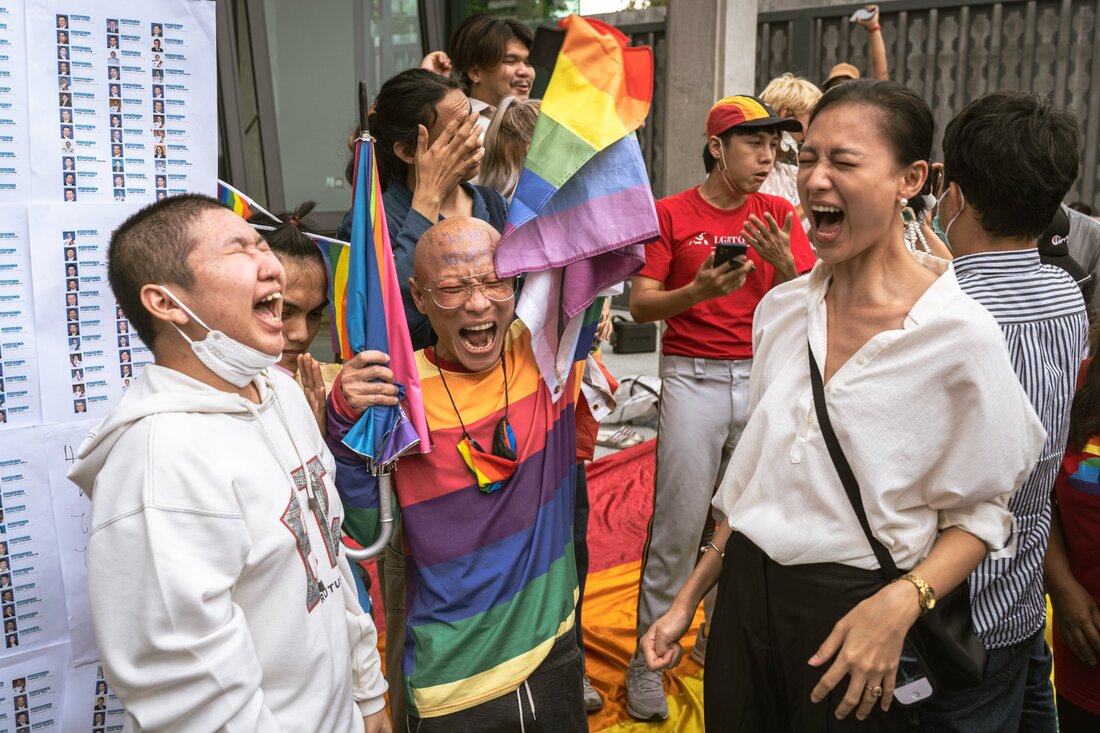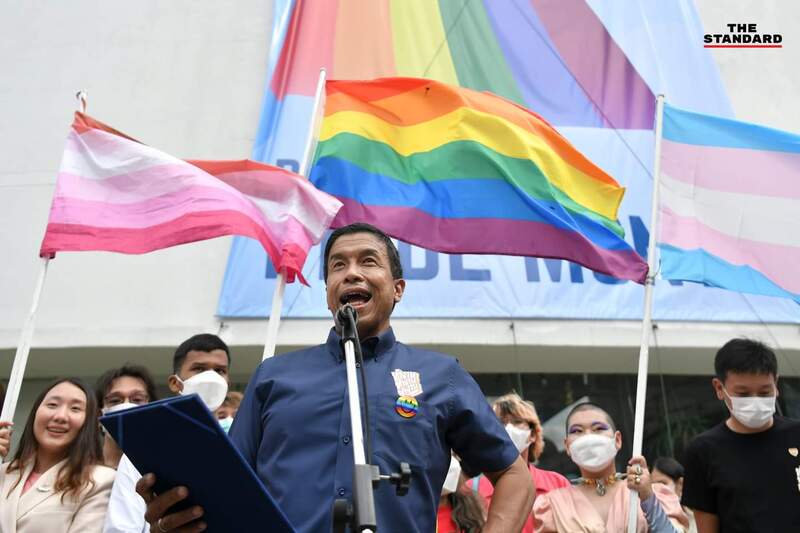|
DEMOCRACY CANNOT SURVIVE WHEN PEOPLE NO LONGER BELIEVE IN IT
On June 23 the expected announcement came that the US Supreme Court had overturned the 1972 ruling in Roe v Wade that permitted abortions nationally. This decision, reducing a basic human right after 50 years, is historic in that it’s never happened before, although previous decisions have extended rights. The announcement had been leaked (much to the consternation of Justice Clarence Thomas and others) a few weeks ago, so it was no surprise and responses were obviously ready to post. The Internet was full of chatter about this. People with longer memories were most alarmed that now abortions will again become illegal in all cases, no matter the motives, in half the states of the USA. That was a tragic era of desperate women going to desperate means with often lethal results. Furthermore, in a concurring opinion statement Justice Thomas advocated reconsideration of a list of other prior decisions regarding contraception, same-sex intercourse, and same-sex marriage. Thomas’s concurring opinion got just as much attention as the decision. Further comment by informed observers clarified that there was widespread legal agreement that some of the cases on which human sexual rights had been affirmed were not stated precisely as might be necessary to stand up over the coming decades, although Roe v Wade has done so until now. Perhaps, reconsideration does not mean reversing those decisions, maybe. Possibly. In fact, all laws upholding the “Right to Privacy” principle based on the 14th Amendment to the US Constitution could now be challenged according to Thomas. Think about what a nation would be like when there is no right to privacy in any way. It’s not impossible. China is employing technology to do that right now. It is equally clear that the US Supreme Court now has the conservative edge needed to continue to pursue the GOP agenda, including eliminating same-sex marriages next. That is a high priority for them. This court, we remember, now contains a replacement member nominated by Trump and pushed by the US Senate led by Mitch McConnell after they had blocked a year-long attempt by Obama to nominate a replacement for Sandra Day O’Connor. In 4 years, Trump got three people onto the Supreme Court while Obama was blocked by conservative Republicans. It was McConnell who spearheaded the GOP blockade of everything that Obama proposed, essentially wiping out all new legislation. And then McConnell was the quarterback for Trump’s 4-year attack on all of Obama’s executive actions. The effort is still on to install a neo-fascist white-supremacist nationalistic regime. The politicization of abortion was instigated by Jerry Falwell. At the time he seized upon abortion as a signal and began to expand the definition of when life begins, all religious opinion was unconcerned about establishing an exact date on it after conception, but all religions supported the idea that the mother’s life was paramount if it came to a crisis choice between a fetus and the mother. Using expanded access to mass media, evangelical-conservative Christians picked up killing unborn babies as an emotional issue to draw a line in the sand dividing good people from evil people. Polarization began with this very issue. It now includes a few other issues that defy debate, including the right to own any guns one wants. New issues come up and some gain traction at least for a while. Current battles are being waged over what rights people have to declare their gender (and where Trans people belong in social spaces), whether the USA is a Christian Nation and what that entails, and movements that advocate clarifying racial realities in US life such as “Black Lives Matter” and “Critical Race Theory.” Now we come to the crux of the matter. It has come back to the way the government operates. The representative democracy of the United States of America was founded on the fragile principle that it exists at the will of the people. It is not by divine right that the government derives its authority, not by military might that it has power, and not by personal whim of any leaders (however brilliant or charismatic) that a democracy makes decisions. There are three branches of government with checks on each other. The Executive with the President of the US in the White House oversees the execution of government processes, the Legislative with the US Congress in 2 houses debating and determining laws, and the Judicial with the Supreme Court of the US as the final authority in interpreting laws’ validity. None of the three branches can operate without the cooperation and consent of the other two. Nor can they continue without the will of the people. Constitutional law and systematic accountability are matters of agreement by the people, without which democracy crumbles. We have now come again to the treacherous brink. This is a season of peril for our democracy. Never, in the past 150 years have the branches of government been held in so little regard. Every single branch has lost respect. The Supreme Court has become the last to fall. “The court has lost legitimacy. They have burned whatever legitimacy they may have had. They just took the last of it and set a torch to it with the Roe v. Wade opinion.” [Senator Elizabeth Warren on ABC News “This Week” Sunday, June 26 quoted in www.businessinsider.com later that day.] Events surrounding the insurrection on January 6, 2021 have begun to make it clear how undermined the Executive branch is in the minds of people across the country and around the world. Decisions by the Executives-in-charge have eroded confidence for decades, but the actions culminating in January 6 have turned-off confidence that democracy is working for a large portion of US citizens, especially those under 50 years of age. Two gauges measure how a democracy is faring. One is how much regard people have for the system of government. That, arguably, is now below the level where the democracy of the USA can be sustained. The other is how the actions of the government meet the expressed needs and hopes of the people. It is a two-way street. The people must support the government and the government must respond to the people. Then it works. It is not working. In issue after issue over the past few decades the government has failed to act in accordance with the expressed wishes of the people. There are so many cases in which this is obvious that it is beyond the scope of this essay to list them. The American people overwhelmingly support action for a sustainable environment, but the government has undertaken hardly any measures to stabilize the climate or develop alternative technologies to replace carbon exploitation. The people expect legislative measures to equalize justice and provide for essential welfare, but the legislature has refused to move against the “military-industrial complex” and international financial structures; and the legislature has even made it hard for people with any social, racial, economic, or medical deviation from some moveable “normal” to survive. Now we have this attack by the judicial hierarchy. Roe v. Wade was supported by 2/3 of the population, but overturned by 5 court justices. What if the government loses the support of the people, as appears to have happened? What happens then? When the majority refuse to be actively involved in readjusting processes that are destroying democracy, the minority have free reign. The minority in this case is inclined to consolidate power and take measures to prevent the majority from arising. There is a window for this to happen. The minority in this instance is made up of neo-fascist supremacists with a military mindset in an implied alliance with limited-agenda conservatives deadest on particular objectives (such as ending sexual excesses of some kind such as sodomy or abortion). This alliance operates without acknowledgement. The majority have an array of disadvantages. The window of opportunity to reassert itself is not going to stay open for long. The majority includes many who are disillusioned and have resigned into the background. Leadership must emerge and inspire renewed hope that effective remedies are achievable without unbearable sacrifices. So, the costs must be specified, and that is hard to do. Civil war might fix things, but the cost is unthinkable. That is one of the reasons that the minority has an armed ultra-wing and the majority does not. That is, it does not unless it can once again attain the people’s allegiance to a political solution. The US Government has one of the largest military powers in history. Thankfully, it is steadfastly neutral in this. As the month of our astonishment draws to a close, as we shake loose from the illusion that things will work out while we’re trying to stay cool and safe indoors. That’s where we are, on the brink hoping for no more earthquakes.
2 Comments
“The secret of the ‘gay agenda’ is to be loved and accepted … without having to change or be changed.” So what’s the fuss? My supportive niece Amber reposted this thought from Susan Cottrell, Freedhearts.org. We can count on Amber and Susan to be positive, affirming, and persistent. May their tribe increase.
However, I question whether there really is such a ting as a gay agenda. It is like “gay community” in that regard. These two terms are current. They are being used extensively by both those who are supportive and those who object to what they think of as the “gay agenda” and “gay community.” The terms are handy. They are headlines to allude to a cluster of ideas that are real but abstract. As with such abstractions, they are accurate within their contexts. When ultra-right conservatives in Hungary or Houston say “gay agenda” they agree with one another that it is a bad thing that rots civilization as they want it to be. When it is mentioned by those in a Gay Pride event it refers to an agreeable set of goals. “Gay community” is another helpful term as long as it is used by those who have defined the term and are in agreement. The dictionary says an abstraction describes a “general quality or characteristic, apart from concrete realities, specific objects, or actual instances.” There is such an entity as the gay community, in the abstract. It does not actually exist in any identifiable, universal way that includes all LGBTIAN+ people, basically because there is no such society. There are groups and they coalesce and dissolve, grow and change, are here and there. If you listen to individual stories, it becomes clear no aspect of community is applicable to all of them any of the time or to any of them all of the time. Narratives are so helpful to get to what’s really real. I used to collect gay stories. Each person’s story, when I got enough of it, was so full of factors, forces, and features that it is unique. A compilation of scores of anecdotes and longer accounts showed stunningly that no two individuals had more than a few motives and characteristics in common. I long for the time when sexual diversity is so well understood that it is no longer an issue of note. Creating the notion of a clear-cut sexual binary has been a disaster. It has devolved even farther into male supremacism / female subjection, and then into hierarchies and persecution. So far, we have failed to overcome this social deterioration. But we are working on it. We have come a long way since Oscar Wilde was imprisoned, Turing was castrated, and riots erupted at Stonewall 53 years ago this week. The clearest indication we are making progress is the emergence of vigorous opposition. The work is getting somewhere. We are even making impacts upon national governments. As we speak, the Thai parliament has before it 4 (count them, four) proposals advocating same-sex unions. On June 15 they passed the most comprehensive one called a “Marriage Equality Act” by a vote of 210 to 180. [The picture accompanying this article is of a group overjoyed when the news came from inside the Parliament building.] The other three bills would also recognize same-sex relationships (and that would be progress) but as somehow distinct from heterosexual marriages – the “standard” way to understand marriage up to now. We are waiting for the second and then the final reading of the act. Parliament could still reverse itself and reject all four. It won’t be over until it’s signed and posted in the Royal Gazette. This week in Japan the courts began to spar about whether marriage must be “between both sexes,” (which means “heterosexual”). An Osaka court ruled that the Japanese Constitution upholds marriage between both sexes, and rejected a claim brought by 3 same-sex couples that being unable to marry was unconstitutional. A Sapporo court in 2021 ruled that failure to recognize same-sex marriage was unconstitutional. So now there are two court rulings in direct contradiction of one another. The Osaka court said that more public debate was needed. Opinion surveys say the public now favors same-sex marriage. The Osaka court ruling may slow down laws recognizing that fact. This is how progress is made, case by case. Parliaments and courts make decisions after considering principles and politics. The abstract principle in question at the moment is about what a marriage is. But this is a social issue, as the Osaka court seems to have discerned. The US Supreme Court ruled in favor of same-sex marriages in 2015 when public opinion became clearly in favor of it; a previous ruling in 2013 was that a national consensus had not yet developed. We can call this “political” but actual public attitudes are swayed by people becoming acquainted with one another. (Would that this happened all the time, but some families do fracture when confronted with gay members.) Stories matter if they are told and heard. Meanwhile, I’ll agree with Amber and Susan that the gay agenda is no threat because it’s no different than everyone’s agenda, and I’m going to be there on July 3 when our big Chiang Mai gay community celebrates Pride 2022. There is no longer any doubt that the world – the whole world – is undergoing the most far-reaching religious reformation in at least 500 years. It is too late to arrest the eradication of the way things have been and too soon to predict the way they will be.
First, Christianity, beginning with Euro-American Christianity: The goal was to civilize the world either by converting masses of people to join the Christian empire, or to impose empire and infuse it with Christianity in due time. This project collapsed in 1920-1970. Empires disintegrated starting with Euro-American ones. (What is being called empires now are fundamentally different in dynamics and structure). Institutional Christianity is dwindling, but there remain robust centers of renewal. These centers are twisting and emerging as protests against the shells and cocoons that encased them, and have barely begun to develop beyond incitement to concern. There is a trend at this time toward refocusing on God beyond our imagination. “If we could see others through God’s eyes, their beauty would take our breath away,” one meme says (attributed to Susan Cottrell, FreedHands.org). A Church of Scotland posting prays, “Let us live wholly to our Savior, free from distractions, from being hindered by the pursuit of what does not matter.” “Scripture became my … compass – its authors … directing me to pursue the Person," say Bradley Jersak and Peter Enns in A More Christlike Word. “At its heart, the Christian spiritual life is the process of allowing [the] image of God to emerge from ourselves.” Even more to the point is Kallistros Ware, “God is not so much the object of our knowledge as the cause of our wonder.” These are protests. They are phrased as injunctions, but they are fundamentally arguments against trying to contain God either within institutional structures or human concepts. They are extensions of JB Phillips’ “Your God Is Too Small” from the 1950s. Meanwhile, as sociologists are documenting, the oncoming generation is unwilling to support the monumental architecture and cultural imperialism of the past 10 generations. They, in their multitudes, do not actually care what happens to the churches on the town squares or the cathedrals in the cities. Governments will rescue the most important ones that cannot be done without lest the identity of the nation be blurred. So, a remnant is retreating back to a starting point that does without empire, hierarchy, or heritage. The search is on for a core of insight that is alive and potent. So, what of Christianity outside the Euro-American cultural sphere? Overwhelmingly, Christianity is still flourishing or at least carrying-on unperturbed. Many of the institutional churches ignore what is going on to disturb older churches in the north and west. Others, concerned about pernicious influence, are erecting defenses and pulling down bridges. If history is a dependable teacher, this will not succeed. Something is going on that is much more extensive than these conservators are taking into account. As I see it, the miasma of Postmodernism (or the concept of “me and mine”) is coming to its peak and will now begin to destroy the vessels that contain it. Human beings are the first animals in Earth’s history to be motivated by concepts, that is by structures of thought that have the power to override responses to sensual stimuli. Our “needs” have expanded exponentially and irrationally. They no longer make sense. They are disconnected not only from reality but from nature. These “needs” put “keeping things” ahead of environmental destruction, nation-building over peace, winning above being kind or even being good, and us over them. These are destructive impulses. Destruction is the inevitable result. Any one of them has the power to destroy us all, and we have embraced the lot. This is universal among the dominant cultures of our time. What, then, of Eastern religions? Within all of them, the same dynamics can be seen. They are either being undermined of their influence, or they are about to be. The destructive forces are not the same as in the north and west. In China, the bastion of 3 millennia of religious development, a recent report says a full 90% of the people are espoused atheists. India, the undisputed cradle of religion, secularism is on the rise, and religion is being usurped to support supremacism; this never fails to replace religious attention on universal unity with grungy elitism and rebellion. Afghanistan has resisted intrusion (stoutly and sometimes successfully), but religious issues are dangerous there when they suppress human growth and development. Saudi Arabia aspires to be the defender of Islam, while at the same time being the advocate for some of Islam’s most self-destructive practices, and this never works for long. Israel has embarked on a path to nation-building that is at the expense of the very values Judaism has treasured. In brief, Oriental religions are as impotent as Euro-American ones, as they are espoused during this time of de-structuralist post-modernism. But there is a protest movement. In its hands are the prospects for surviving the coming cultural cataclysm. To be going forward, what optimists can hope for is a paradoxical emergence of an understanding that the concept that matters is of a Divine Essence which is so far beyond the unimaginable that it comes out the other side. It cannot be imagined at all. Nothing that is conceivable is true or applicable to the Utterly Divine. Our only experience of it is as an astounding wonder. No smaller god can be God. Still, (and this is the paradox) we are not stupefied by this experience, we are impelled by it. We are propelled by it back into hopeful action, action that is only conceivable if it includes everybody within reach. Every. Body. Heart, Soul and Energy. PRIDE month has begun in Thailand. Events will continue all month, but history was made this past weekend when Bangkok, once again after a long hiatus, had a Pride Parade through the heart of the commercial district. This parade was massive and impressive. The newly-elected Bangkok Mayor attended and other political celebrities showed up. Most LSGT+ groups marched behind banners. Some costumes were fabulous!
There are several ways to measure a Pride parade. One way is how daring and challenging participants are. In this parade, despite strong social pressure to be modest, flamboyant costumes were prominent. From pictures online (which is my resource for this report) we can conclude that Bangkok still runs #2 behind Taipei as far as scanty clothing goes. But the push toward marriage equality and equal rights legislation was a repeated theme, taking precedence over the right to be open and expressive, free of restrictions, and proud of one’s sexual divergence. The right to be bonded and together, a BIG LOVE community, and moderately safe, are what count. A second way to measure a Pride parade, as already hinted, is whether officialdom stays away. To be accurate, it is much preferred that police and military (acting, as they would insist, in behalf of security) would not be obvious. None of our pictures showed a single person in uniform, much less in battle dress. On the other hand, the Mayor came to both a Saturday kick-off event near Siam Square and the parade on Silom Road on Sunday. We notice that, so far, the Prime Minister has been absent – actually he has been very busy with international visits right now, so we will cut him some slack. There’s plenty of time left this month for the government to mend fences with LGBTQIAN and SOGI rights advocates. Bangkok last held an official Pride parade in 2006. It was energetic, but quite small. Maybe only 150 participants, if memory serves me (I was there). This time there were clearly tens of thousands filling the boulevard from side to side for several blocks after the organized parade had passed. At the time of the first couple of attempts to have a Pride parade, the Taksin government was in a suppressive mood, and the gay leadership was divided into opposing camps, giving the government convenient fuel to ignite public concern. Shortly after that, political thugs attacked our Pride Parade in Chiang Mai. The tide, it seems, has turned. The last thought (picture 10 in this set) is a reminder that everything we hope for will be lost if life as we know it on Earth becomes extinct. We wish you all a prideful and joyous month. Illegitimi non carborundum. [I am grateful to the many who posted pictures of the Bangkok Pride Parade on June 5. Since the same batches were posted by several people, I am confused about whom to thank and give credit. I will be happy to add credits if the photographers will let me know. Meanwhile, THANKS to you who dressed gaily, marched boldly, sang loudly, and took pictures.] |
AuthorRev. Dr. Kenneth Dobson posts his weekly reflections on this blog. Archives
March 2024
Categories |
| Ken Dobson's Queer Ruminations from Thailand |
|













 RSS Feed
RSS Feed
